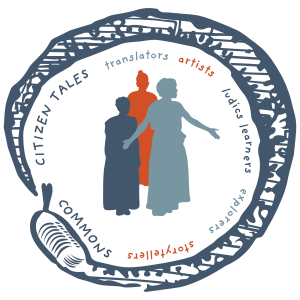
Angeliki Asimaki
Angeliki Asimaki
Senior Lecturer in Cardiac Morphology and Sudden Death at St George's University of London
Pathogenesis of sudden cardiac death & the Development of Mechanism-based Therapies.
Prior to joining St George’s, University of London NHS Hospitals in 2017, Dr. Angeliki Asimaki was a research associate at the Beth Israel Deaconess Medical Centre (BIDMC) and an instructor in cardiovascular pathology at Harvard Medical School (HMS) in Boston, USA. She went to the BIDMC in 2006 for a research elective while pursuing my PhD at University College London. After obtaining her PhD, she remained at the BIDMC where she completed two postdoctoral fellowships awarded by the Heart Rhythm Society (HRS) and the American Heart Association (AHA). She joined the faculty at HMS in 2011. She has been recognized with several highly competitive young investigator awards including the Bevan price for outstanding academic achievement, the Dennis Escande award of excellence and the first price at the young investigator award competition at the 2007 HRS Scientific Sessions. She is an author on >80 peer-reviewed research papers and >15 invited submissions (reviews, editorials and book chapters). She has published major first-author research papers in the New England Journal of Medicine (NEJM) and Science Translational Medicine (STM). She has been invited to give lectures in >60 venues including HRS, AHA and Cardiostim as well as several seminar talks both in the US and Europe.
In terms of research interests, she studies the molecular mechanisms of pathogenesis of diseases that cause unheralded sudden death in young people. She mostly focuses on two such disease entities; arrhythmogenic cardiomyopathy (ACM) and Brugada syndrome (BrS). Although the past two decades have seen a huge leap in unravelling the genetics underlying these diseases, the precise mechanisms through which genetic mutations bring on the actual disease phenotype are largely unknown. To shed light into such mechanisms, she and her team have developed highly informative in vitro, in vivo and patient-derived ex vivo experimental models, which they use not only to understand mechanisms but also to test much-needed mechanism-based therapies.
As a Citizen TALES Commons member she dedicates most of her time in mentoring its junior members in the frame of the Citizen TALES Youth Leadership Forum in Civic Innovation.
Angeliki Asimaki
Senior Lecturer in Cardiac Morphology and Sudden Death at St George's University of London
Pathogenesis of sudden cardiac death & the Development of Mechanism-based Therapies.
Prior to joining St George’s, University of London NHS Hospitals in 2017, Dr. Angeliki Asimaki was a research associate at the Beth Israel Deaconess Medical Centre (BIDMC) and an instructor in cardiovascular pathology at Harvard Medical School (HMS) in Boston, USA. She went to the BIDMC in 2006 for a research elective while pursuing my PhD at University College London. After obtaining her PhD, she remained at the BIDMC where she completed two postdoctoral fellowships awarded by the Heart Rhythm Society (HRS) and the American Heart Association (AHA). She joined the faculty at HMS in 2011. She has been recognized with several highly competitive young investigator awards including the Bevan price for outstanding academic achievement, the Dennis Escande award of excellence and the first price at the young investigator award competition at the 2007 HRS Scientific Sessions. She is an author on >80 peer-reviewed research papers and >15 invited submissions (reviews, editorials and book chapters). She has published major first-author research papers in the New England Journal of Medicine (NEJM) and Science Translational Medicine (STM). She has been invited to give lectures in >60 venues including HRS, AHA and Cardiostim as well as several seminar talks both in the US and Europe.
In terms of research interests, she studies the molecular mechanisms of pathogenesis of diseases that cause unheralded sudden death in young people. She mostly focuses on two such disease entities; arrhythmogenic cardiomyopathy (ACM) and Brugada syndrome (BrS). Although the past two decades have seen a huge leap in unravelling the genetics underlying these diseases, the precise mechanisms through which genetic mutations bring on the actual disease phenotype are largely unknown. To shed light into such mechanisms, she and her team have developed highly informative in vitro, in vivo and patient-derived ex vivo experimental models, which they use not only to understand mechanisms but also to test much-needed mechanism-based therapies.
As a Citizen TALES Commons member she dedicates most of her time in mentoring its junior members in the frame of the Citizen TALES Youth Leadership Forum in Civic Innovation.
